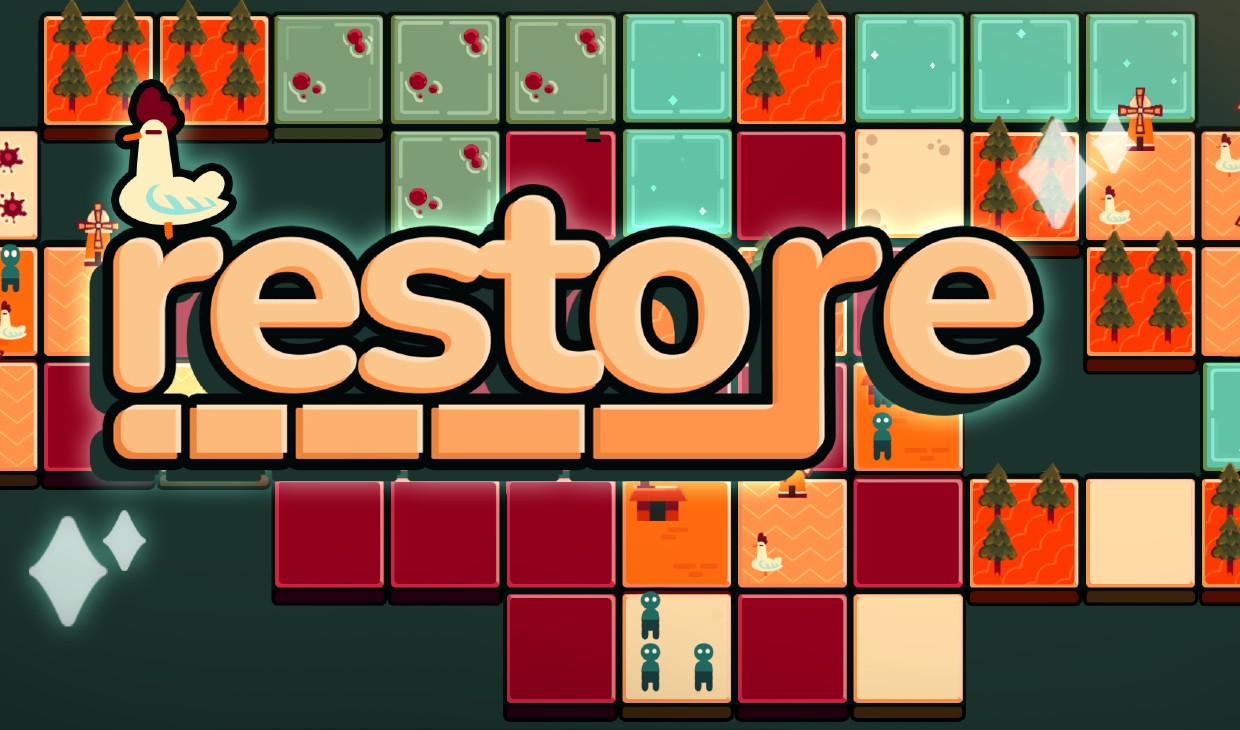Video game gives players the power to manage land
Video game gives players the power to manage land
/filters:format(webp)/filters:no_upscale()/prod01/cdn/media/stirling/news/news-centre/2024/october/1200X630RESTOREIDNilsBunnefeldBradDuthieGlitchersRestoreGameLaunch.jpg)
Scientists at the University of Stirling have developed a video game which will broaden understanding of the benefits of environmental restoration and the risks of pandemics.
Players can assume the role of an agriculturalist or an arborist (a specialist in the care and maintenance of trees) and cultivate land according to their priorities.
Users of the game, called Restore, are tasked with regenerating forests and restoring nature, or they can choose to chop down trees to make money, farm the land and, to increase income from tax, found new settlements.
However, a trade-off emerges for the game player, where restoring landscapes initially increases the risk of a pandemic, while fully restored landscapes buffer against disease risks.

Advanced research methods
Restore was created as part of a wider initiative, RESTOREID (Restoring Ecosystems to Stop the Threat of (Re-) Emerging Infectious Diseases), a project dedicated to exploring the links between nature restoration, biodiversity, and disease prevention.
By using advanced research methods, the project aims to understand how restoring ecosystems can help reduce disease risks for both humans and animals. RESTOREID’s findings will contribute to shaping policies and practical guidelines for creating healthier landscapes and safer coexistence.
The project is part of 16-partner European-funded research programme set up to investigate how restoration may impact disease spillover risk, but also enable local communities to take part in restoration and set their own restoration priorities.
Anonymised decision-making by game players will generate data to be used in RESTOREID’s research efforts. These data will be sent to scientists at the University of Stirling’s Department of Biological and Environmental Sciences, part of the Faculty of Natural Sciences.
Analysis will assist with the development of new monitoring tools that communities can use to assess the biodiversity and disease risks of their environments.
Simulated environments
Dr Brad Duthie, Lecturer in Environmental Modelling at the University of Stirling, said: “Restore applies ecological knowledge to in-game simulated environments, within which player decisions are made on landscape restoration under different scenarios.
“As well as being fun to play, the game educates players on restoration while giving us a better understanding of the factors driving the restoration process.
“Data generated by the game, which are anonymised during collection, will allow us to learn about how people prioritise different decisions in restoration.”
Professor Nils Bunnefeld, of the University of Stirling, who is a partner in the project, said: “The RESTOREID project is an exciting opportunity to make the voices of many people heard through their decisions in the game, and collect data on opinions from people that are often hard to reach.”
The video game was designed by Glitchers, an innovative games studio that engages people with groundbreaking science and real-world challenges through meaningful play.
 Maxwell Scott-Slade
Maxwell Scott-Slade
Maxwell Scott-Slade, Game Director at Glitchers, said: “We were pleased to partner with the University of Stirling and RESTOREID on this project.
“The game will give users the chance to shape the world they want to create, but the ecosystem is delicate, and every decision has ripple effects, much like in real-world ecosystems. Users must look out for unexpected consequences in this simplified environmental scenario, such as disease which can lead to a cull of livestock.
“We hope people will enjoy taking on the roles and cultivating the land in whatever way they choose.”
The game which is free to use and requires no download or sign up is available here.
